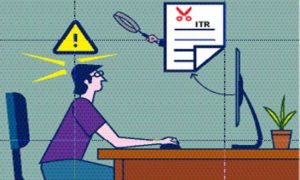The Employee Provident Fund (EPF) also referred to as Provident Fund (PF) is a government-backed scheme and is a compulsory deduction for salaried employees.
The Employee Provident Fund (EPF) also referred to as Provident Fund (PF) is a government-backed scheme and is a compulsory deduction for salaried employees. It is a fund to which both the employee and employer contribute 10 per cent of the employee’s basic salary each month. Earlier this percentage was 12 per cent for private organisations. The employer and employee deposit their contribution with the Employee Provident Fund Organisation (EPFO) every month. Generally, the accumulated or a part of the amount in an EPF account can be withdrawn by the employee in the event of retirement, or resignation. But witnessing the tough times for many, the EPFO has now allowed the members to withdraw a part of the amount in case of these crisis situations. Check the latest PF withdrawal updates by EPFO.
1) COVID Advance Facility after leaving the service
In case of financial difficulties due to the Covid-19, the government in March 2020 announced that a person can withdraw a part of the amount from its EPF account. This way, the person will not have to think of borrowing from anywhere and can use his money at the time of need. The EPF Scheme, 1952 provides for the grant of advance to its members in case of an epidemic. A person can obtain an advance from its EPF balance up to three months of basic salary plus dearness allowance, or 75 per cent of the balance standing in its account, whichever is less. This advance is non-refundable and the person will not have to deposit the withdrawn money back into its EPF account. The person eyeing for an advance can make an online application using its login on the EPFO’s website.
2) Avail Non-Refundable Advance in case of Unemployment
The members, who are unemployed for a month or more can now avail a non-refundable advance of up to 75 per cent of amount available in their PF account. The EPFO recently tweeted that “Members who are no longer employed for one month or more can avail a non-refundable advance of up to 75 per cent of amount available in their PF account.” The auto-mode of settlement enables EPFO to reduce the claim settlement cycle to just 3 days, against the statutory requirement to settle the claims within 20 days. This amount can be transferred from one company to another in case the employee changes his job. EPF account yields a return of 8.5 per cent annually.
3) Second COVID-19 Advance to meet financial needs
Similar to the last process, a person can obtain a second COVID-19 advance from its EPF balance up to three months of basic salary plus dearness allowance, or 75 per cent of the balance standing in its account, whichever is less. This advance is non-refundable, and the person will not have to deposit the withdrawn money back into its EPF account. The person eyeing an advance can make an online application using its login on the EPFO’s website.
4) EPF EDLI scheme
EPFO has stated that if a Provident Fund account holder dies due to any reason, including Covid-19, then his family will get a maximum amount of Rs 7 lakh as part of the Employee’s Deposit Linked Insurance (EDLI) Scheme. The maximum threshold was earlier fixed at Rs 6 lakh. However, it has been increased to Rs 7 lakh. The minimum amount threshold has been kept at Rs 2.5 lakh.
5) ESIC Covid-19 relief Cover
Amid the Pandemic, families of workers, who died due to COVID-19, to get Employees State Insurance Corporation (ESIC) Pension and Insurance Benefits. Prime Minister Narendra Modi recently announced the liberalisation and expansion of various such schemes. The families of those, who died due to COVID-19, will get the pension, along with enhanced and liberalised insurance compensation under the Employees State Insurance Corporation, and the Employees Deposit Linked Insurance Scheme (EDLI), respectively. Let’s understand the new COVID-19 benefits of pension under ESIC and the insurance cover under EDLI in a better way.





































